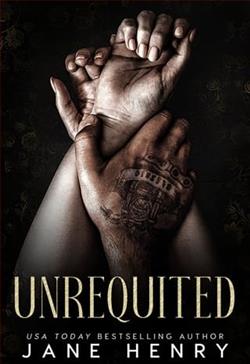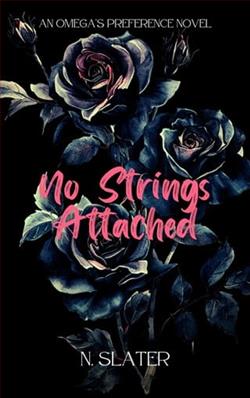Page 20 of Anything But a Duke
Di sensed her mother’s gaze on her, searching and intense. Rather than face the question in her eyes, she stared at the empty patch of wall over the fireplace. A landscape painting had hung in the spot for years, but the previous week their mother had sold it to an art dealer in order to fill their coffers and pay the rent.
They’d already lost so much. Not merely furnishings and housemaids but dignity. The Ashbys had once been a proud lot. Her grandfather had been a respected leader in society, a philosopher who’d written volumes on man’s essential nature. Her grandmother had busied herself raising six children, including four daughters, all of whom went on to marry higher than they’d been born.
It was a hope Diana’s mother had long nursed for her too.
She understood her mother’s wishes. If she or Dom married well, their mother could reside with one of them. Their house might be sold or let. How could she blame her mother for wishing to see her children settled and to find a bit of security in her dotage?
“Your invitation,” Grace said with a smile, offering up a small buff-colored envelope sealed with a daub of wax.
Diana glanced at her mother and reluctantly took the envelope. Inside, she found an invitation to the reunion, which was to be held in a few weeks.
Diana pressed the envelope to her lap as a wave of nostalgia made her throat burn. She’d kept herself so busy that she’d neglected the few friendships she valued. Being matched with an eligible suitor didn’t interest her in the least, but she was touched by her friends’ kindness and encouragement.
“Will you attend, Diana?” Grace, who’d shared her dormitory at finishing school, met her gaze squarely. She was a young woman who could hide her own feelings well, but always seemed to suss out others’ quickly.
“I’ll come to the reunion.” As soon as she’d agreed, Diana felt a strange mixture of dread and eagerness.
“Hurrah!” Sophie bounced in place on the settee, clapping her gloved hands and squealing with excitement.
“Will you stay for luncheon, ladies?” her mother asked cheerfully.
Diana’s brow winged up. They hadn’t hosted visitors at their home in ages, and she wondered if their cook could rustle up something better than a few cups of tea on such short notice.
“We should go,” Elizabeth said. She offered Diana a nod and a soft smile, as if she was pleased with the outcome of their visit. “But while we’re all in town, we should see each other more.”
“I’d like that.” Diana kept her own company too much. Time spent working on her inventions allayed most of her loneliness, but not all.
After lingering good-byes and promises to meet again for a stroll through the park or a visit to a museum, Diana waved until their carriage had rolled out of sight, and returned to the drawing room.
Before saying a word, her mother rang for tea and seated herself on her favorite chair as if nothing out of the ordinary had occurred.
“Are you going to tell me where you were this morning?” she finally asked.
When Diana didn’t immediately offer an answer, her mother patted the arm of the settee. “Have a seat, my dear. We must talk.”
Dreaded words. A little shiver danced down Diana’s spine.
When she sat, her lower back twinged, a reminder of her collision with a tall, muscled man. She’d been so certain Iverson or Huntley might invest in her idea, and yet all of them had disappointed her.
“I’m not angry with you, Diana.” Eloise Ashby could lie to a parson, charm a naysayer, and spoke freely but rarely said exactly what was on her mind.
Yet Diana could sense this was different. Her mother wore no false smile, and she’d settled back against the cushions of her chair as if the morning had already worn her out.
Weakness was nothing Diana was familiar with in her mother. She was never ill, never anything but cheerful about facing a new day.
Her mother’s gaze settled on the empty patch of plaster above the fireplace.
“Your father gave that painting to me after an argument.” A small smile teased at the edges of her mouth and she glanced at a portrait of him on the far wall. “I accepted the watercolor because it was a gift. But I require no dreadful landscape to remind me of him.”
To Diana, her father’s legacy was the poverty and indebtedness her family had struggled to overcome since his passing.
“I see your father in you and your brother every day.”
“There is an unmistakable resemblance.” An agreeable tone was all Diana could manage. Today, when she needed a bit of her mother’s sunny disposition most, she felt numb. Disappointment had dimmed everything else.
“You took your invention away with you this morning. I saw you departing with your box.”
Diana cast her mother a rueful look. Her father might have possessed a prodigiously creative mind, but her mother’s powers of observation were impressive too. She and Dom were fools to think anything slipped her notice.















